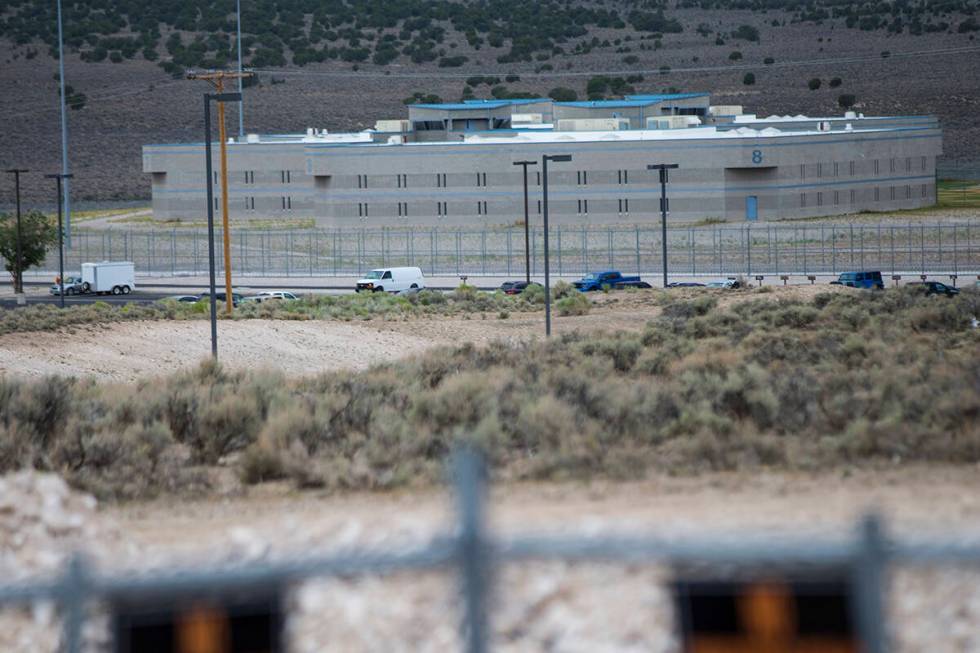Carson City judge blocks commutations of death row sentences

CARSON CITY — A Carson City District Court judge Monday ruled the state Board of Parsons may not consider commuting every death sentence in Nevada at its Tuesday meeting.
Judge James Wilson issued a writ of prohibition against the board and Gov. Steve Sisolak — who asked the board to consider the commutations — after the Washoe County district attorney’s office filed an emergency petition on Friday seeking to block the move.
Wilson ruled that the board had not properly notify the families of murder victims of its intent to commute the death sentences of the 57 people currently on death row, that those inmates had not exhausted all of their appeals and that they had not applied to the board to lessen their sentences. In addition, the board is required to consider each case individually, and cannot grant “categorical” clemencies, Wilson ruled.
“The Board’s proposed action would violate the Nevada Constitution by failing to provide (victim’s families) with reasonable notice of these public proceedings, so that they may exercise their constitutional right to be reasonably heard regarding the proposed commutation of 57 death sentences,” Wilson wrote. “Each victim is entitled to be treated with fairness, respect, dignity and the right to be reasonably heard at any hearings involving the commutation of sentence.”
In addition, the law requires a consideration of each individual case on its merits, which would be impossible at Tuesday’s meeting, Wilson wrote.
“Equally evident in the plain meaning of the statutory and administrative code is the Board’s obligation to make an individualized determination in each clemency matter,” Wilson wrote. “Even if individual applications had been submitted for each of the 57 persons on death row, the type of individualized determination that is mandated by (state law) and (administrative regulations) cannot be reasonably accomplished at a single meeting of the Board.”
Finally, Wilson wrote, the board can’t do a mass commutation. State law “does not permit the Board to grant ‘categorial’ exemptions, as this would amount to the Board creating statutory exceptions to a form of punishment specifically provided for by the legislature. It is not the Board’s prerogative to amend statutes.”
Governor supports clemency
The controversy began last week, when Sisolak urged the board to consider commuting every death sentence in the state. The board, which decides clemency cases in Nevada, is made up of the governor, the attorney general and all seven members of the Nevada Supreme Court.
That prompted the Washoe County district attorney’s office to file a motion to block the move on Friday.
Meghin Delaney, a spokesperson with the governor’s office, said Sisolak had no comment on Wilson’s ruling Monday, but would address the matter at the pardons board meeting on Tuesday.
Meanwhile, Gov.-elect Joe Lombardo, a career police officer who currently serves as the sheriff of Clark County, hailed the ruling: “I’m thankful to Judge James Wilson for upholding the law, and I’m grateful that he protected the voter-approved constitutional rights of crime victims and their families. I’m relieved that justice has prevailed through Marsy’s Law,” Lombardo said in a statement.
Marsy’s Law was a 2018 voter-approved constitutional amendment that provided rights to crime victims, including to have a notice of all hearings, to attend those hearings and to speak about the proceedings.
Other appeals
In addition to Washoe County, the Clark County district attorney’s office asked the Nevada Supreme Court to block Tuesday’s hearings, making similar arguments to its counterpart in Washoe County.
Not only that, but Jennifer Otremba, the mother of 15-year-old murder victim Alyssa Otremba, filed a similar petition with the Supreme Court on Monday, arguing that changing the board’s agenda without giving notice to victims’ families violated Marsy’s Law.
“The Pardons Board’s rushed effort to commute all capital sentences without the mandated notice and application has not only robbed Jennifer of her right to participate, it has also deprived the Pardons Board of jurisdiction to proceed,” Otremba’s petition said.
Otremba has addressed the Legislature multiple times in recent years as an opponent of abolishing the death penalty. Her daughter’s killer, Javier Righetti, was sentenced to die for raping and stabbing the teenager more than 80 times in 2011, during the girl’s first week at Arbor View High School.
Bills to repeal the death penalty have been repeatedly introduced in the Legislature, but none have ever passed. In 2021, a repeal bill passed the Assembly but died in the state Senate. Sisolak at the time said he was generally opposed to capital punishment, but wanted exceptions for especially heinous crimes such as the mass shooting that took place on 1 October in Las Vegas.
Last week, Delaney said the governor felt that commuting the death sentences was a “worthy item” for the board to consider.
“The Governor has always said that capital punishment should be sought and used less often, and he believes this is an appropriate and necessary step forward in the ongoing conversation and discussion around capital punishment,” she said in an emailed statement.
Contact Katelyn Newberg at knewberg@reviewjournal.com or 702-383-0240. Follow @k_newberg on Twitter. Contact Taylor R. Avery at TAvery@reviewjournal.com. Follow @travery98 on Twitter.
State of Nevada v. Nevada Board of Pardons, Steve Sisolak by Steve Sebelius on Scribd